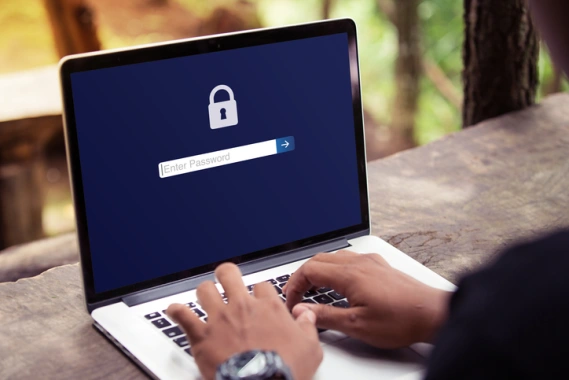It's a common misconception among businesses that only the IT team is responsible for cybersecurity. The truth is that everyone in an organization has a role to play, from the top down.
In fact, it's employees who are the first line of defense against cybercrime—a recent report revealed that "individual contributors and lower-level management" are the subject of 67% of highly-targeted attacks.
This means that it's important for employees at all levels of the business to be taking their responsibilities toward cybersecurity very seriously. Here we present six best practice tips to ensure that your employees become more cybersecurity savvy:
1. Invest in training
Knowledge is power—and cybercriminals can thrive if members of your team aren’t aware of the dangers and risks of the latest techniques of cybercriminals. Employees need to be provided with high quality cybersecurity training, and it's essential that this training is regularly updated to ensure it's relevant to what today's criminals are doing.
Training should cover a range of issues, including updating staff members about key things to look out for, but also to make sure that staff members understand company policies relating to security. Best practice can change very quickly, so this is perhaps the most vital aspect of helping the staff stay secure.
2. Review password policy
The jury's still out somewhat on whether it's a better idea to change your password very regularly. While there are undoubted security benefits of changing your password, forcing a change too often can actually do more harm than good. Having to remember too many passwords can lead to your employees using passwords that are far less secure.
What can be agreed is the importance of "strong" password choices, no matter how often the change is mandated. Ensure that employees use passwords with a combination of lower- and upper-case letters, numbers, and special characters. Plus, advise them to avoid using words from the dictionary.
3. Recommend protection away from the office
The rise in remote working has certainly provided businesses with a broad range of benefits, but it can also be a cause for concern from the perspective of cybersecurity. In the office you can control the cyber security measures protecting your staff, but away from the office, it brings new challenges.
Provide your employees with antivirus software and where appropriate restrict access to systems when they are outside the office.
4. Understand the latest phishing techniques
Phishing is still one of the more problematic issues for businesses—this is a form of cybercrime in which criminals send fake emails purportedly from genuine sources. This email tricks users into handing over their credentials. Figures suggest that one in every 99 emails is a phishing attack. This means it's vital that employees understand how to recognize and report phishing attempts.
It's worth noting here that phishing isn't confined to emails. SMS phishing is also becoming a huge problem. This is exacerbated by the number of employees using mobile devices as a part of their job.
5. Get IT issues approved by the IT team
Another common issue is shadow IT. This is the use of software and applications that haven't been approved by the IT department. This might sound harmless, but it can be a huge cause for concern.
Unapproved software and applications can contain vulnerabilities that criminals could exploit, and if the IT team members are unaware of the use of this software and applications, then they're unable to tackle the problem. For this reason, it's vital that any IT decision should be approved by your IT team.
CCTV (a security system) can be an extremely powerful tool for securing your company and it's important that you do it right. 📹
— Keap (@KeapGrowing) May 16, 2020
🔒 Check out our blog on how you can use it for securing your business 🔒 https://t.co/PdhGO8QfvX pic.twitter.com/34wFRoSzBA
6. Test security awareness
Good cybersecurity is all very well in theory—but can you be sure that your staff put it into practice in the real world? The best way to understand this is to have a pentest carried out by a qualified cybersecurity firm.
Penetration tests simulate attacks using the same techniques a cybercriminal would use when trying to breach your organization. This not only gives you valuable insight into vulnerabilities in your business’ defenses, it also gives you the chance to see how your staff members react in the face of an attack.
Conclusion
In cybersecurity, things change very quickly. And advice that was pertinent a year ago might not be so today. It's important to work with cybersecurity specialists to ensure that your knowledge and business defenSes are as up to date as possible. The same goes for your employees—provide them with the latest information to ensure they have the best chance of staying safe online.
- SEE HOW YOU RANK: Take Keap's Lifecycle Automation Assessment and compare your business against the industry’s top performers with our proven formula and instantly reveal the strengths and gaps of your business.


